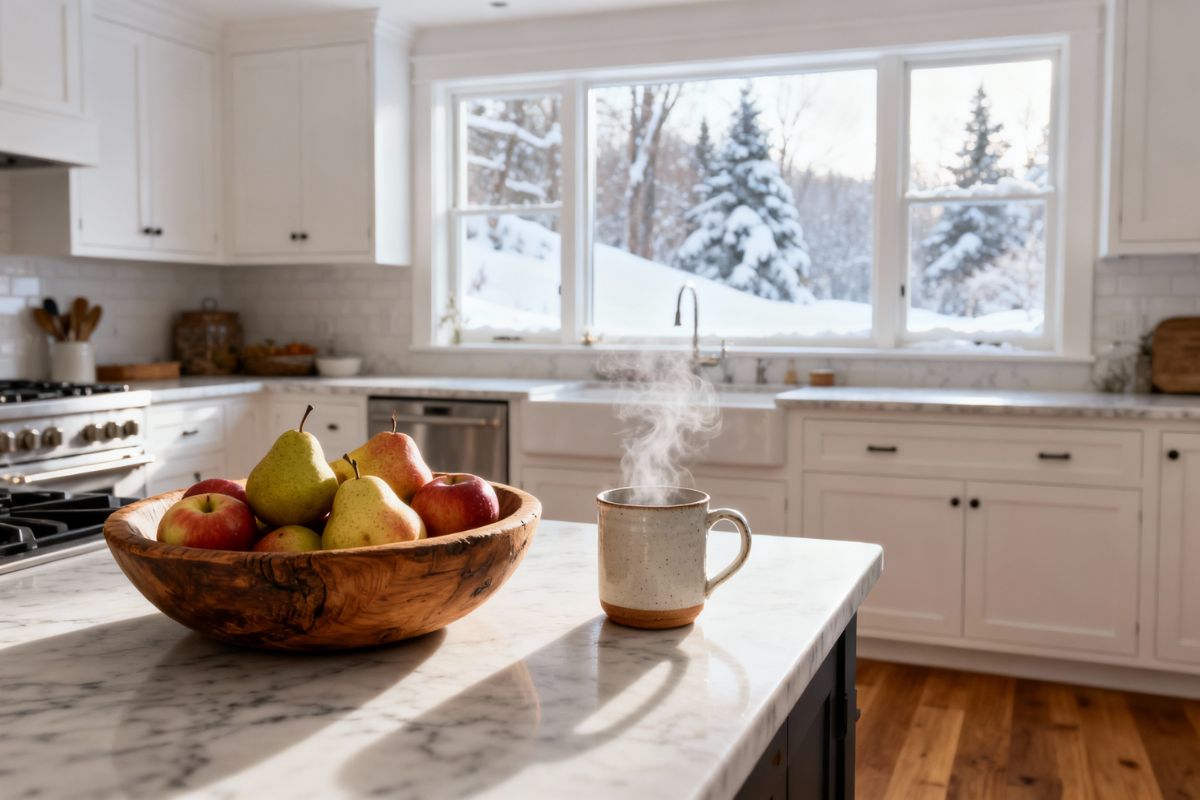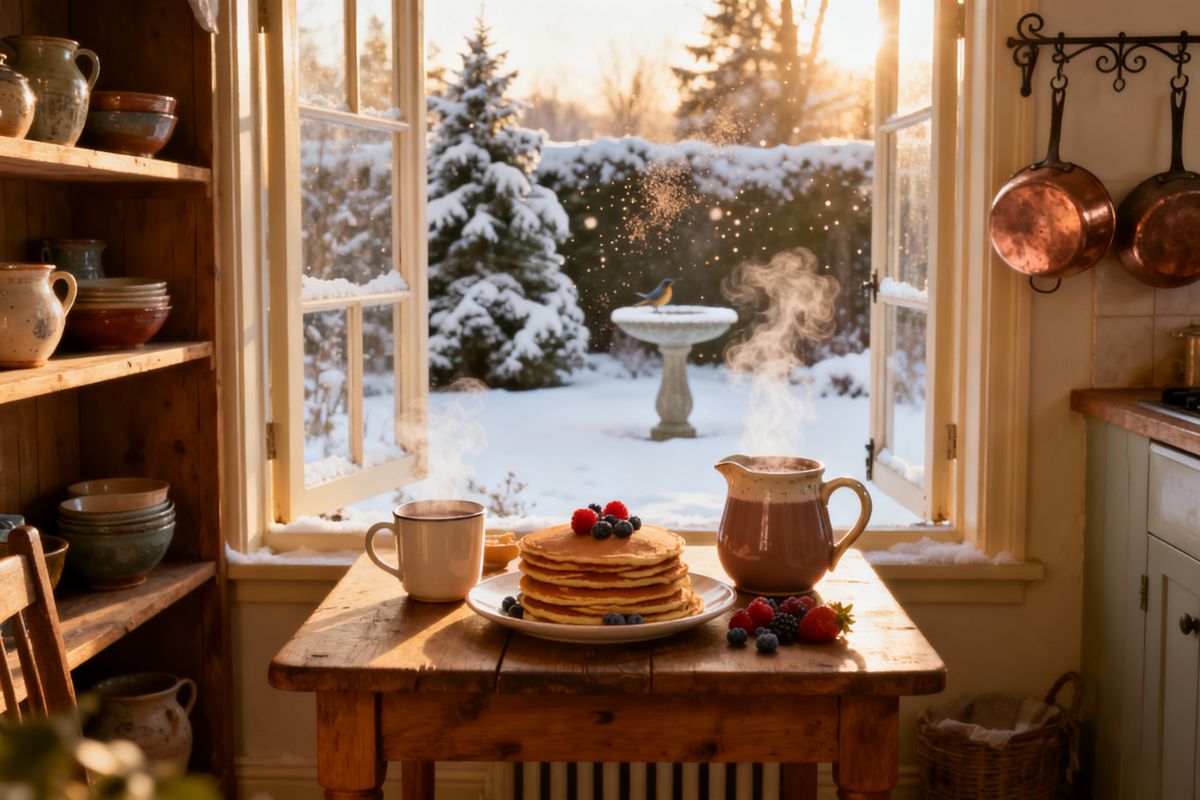Is a Tiny House Right for Your Retirement?
.jpg)
There are several reasons to take the tiny home craze seriously, especially if you are looking for a small, ergonomic, and eco-friendly space to retire to. If you aren’t turned off by the diminutive ‘tiny,’ you might discover that a tiny home is the perfect kind of home for retirement.
This post will explore the tiny home movement and why it might be the next big thing for retiring Americans. First, we’ll discuss a brief overview of the movement and then dig into the benefits of incorporating the tiny home lifestyle—because it is undoubtedly a lifestyle—into your retirement plans.
Tiny Home Movement: In a Nutshell
The ‘tiny home’ is a modern concept, and in many ways, it's also a reactionary one. Home sizes, on average, have gotten bigger and bigger. Since 1980, median home sizes have grown by 150%. Houses have been growing larger, but families are getting smaller in size. All this extra space a lack of people to fill it creates a strange cognitive dissonance.
Perhaps it was this cognitive dissonance, coupled with the aesthetic principles of minimalism and a trend toward ecologically friendly designs, that spawned the architectural and social movement known as tiny homes in the late 20th century.
It really is a movement, too. Tiny home communities are made up of like-minded people who want to do more with less. Generally, there is a strong emphasis on community, minimalism, and environmentally-friendly living.
Tiny Homes in Pop Culture
Anyone with access to a TV in the US is at least somewhat familiar with the various reality TV shows that are focused on tiny homes. From Tiny Luxury to Tiny House Nation to Tiny House, Big Living, the concept of living a simpler life on a perfectly-manicured property in a meticulously crafted, luxury tiny home makes for magnificent television.
But it’s essential to make a clear distinction between a bona fide tiny home and what would otherwise be considered a small home.
Tiny Home Vs. Small Home
Let’s make a clear distinction between tiny homes and small homes. Small homes have 1,000 sq. feet or less—they are small but not as small as an actual tiny home. Genuine tiny homes have 400 sq. feet or less, excluding loft space.
Why Tiny Homes Are Good For Retirement
Now that we’ve explored a brief history of the tiny home let’s look at the arguments for why tiny homes are ideal for American retirees.
Financial
Because they are smaller and require less energy, there are several ways retirees can save money by switching to the tiny home lifestyle. Most tiny homes will not require a mortgage, and many units can be bought prefabricated or custom-built for well under $100,000.
Though some prefabricated units are advertised as cheap as $10,000, this is unrealistic. If you want a modern, fully-functional tiny home with all the amenities, you should expect to pay between $40,000 and $70,000 for mobile units and perhaps a bit more for units with a solid foundation.
Save On Energy Costs
A small physical space means you’ll use less energy powering it. Because of their size, many tiny homes can be powered partially or entirely on solar energy. You’ll have fewer things you’ll need to power too because there simply isn’t the space for it.
Having fewer monthly expenses is an attractive feature of the tiny home lifestyle if you are on a fixed retirement income.
Save On Fewer Repairs and Maintenance
According to Murphy’s law, anything that can go wrong will, eventually, go wrong. This means that the more moving parts involved in a system, the more space and possessions you have, the more likely something terrible will happen—something will break, leak or need repairs.
A smaller space minimizes the chances of something terrible happening to your home. Plus, if something terrible does happen, the repairs are much less expensive (and frequent). This is not only true of your house but your possessions, too. The fewer appliances and electronics you own, the less likely you’ll be replacing them.
Mobile, Flexible Living
Many tiny homes are designed to be attached to trailers and are quite mobile as a result. This flexibility means that you aren’t tied down to one plot of land—you aren’t even tied down to the same spot on the same plot of land.
This flexibility is ideal if you want to travel in your retirement or visit friends and family who live far away. You could own a small plot of land to act as your home base when not traveling and spend the rest of the year on the road.
Also, savvy retirees will see the benefit in being able to relocate to different areas of their property to take advantage of seasonal differences in sunlight and temperature.
Reduce Your Carbon Footprint
By nature of being smaller, tiny homes have less of a negative impact on the environment, but there are other, additional eco-friendly options for those embracing the tiny home lifestyle. Tiny homes can be made from recycled materials and fitted with eco-friendly amenities like compost toilets, foot-pump-powered sinks, greywater recycling, and rainwater catchment devices. These options can help take a good environmentally friendly concept and transform it into a great one.
Downsize Your Life
If you are nearing retirement age, chances are you have collected a lifetime’s worth of odds and ends. These have probably accumulated over the years in every drawer, closet, attic, and basement.
If you are looking for a way to make things simpler, moving into a tiny home is a great way to force you to part with the many material accouterments most people acquire over a lifetime living in our material world.
Join a Tiny Home Community
There are several tiny home communities in the United States designed for seniors. These communities promote the many benefits of independent senior living and help foster a sense of community among like-minded retirees.
Is A Tiny Home Right For Your Retirement Plans?
Tiny homes offer a unique alternative to the traditional picture of American retirement. There are several benefits to joining the tiny home lifestyle. Though it isn’t for everyone, it might be for you and your spouse.
If you want to experiment with the tiny home lifestyle, try renting an RV for your next vacation or get straight to it and rent a tiny home!
About the Author
Jenn Walker is a freelance writer, blogger, dog-enthusiast, and avid beachgoer operating out of Southern New Jersey.






.jpg)


.jpg)